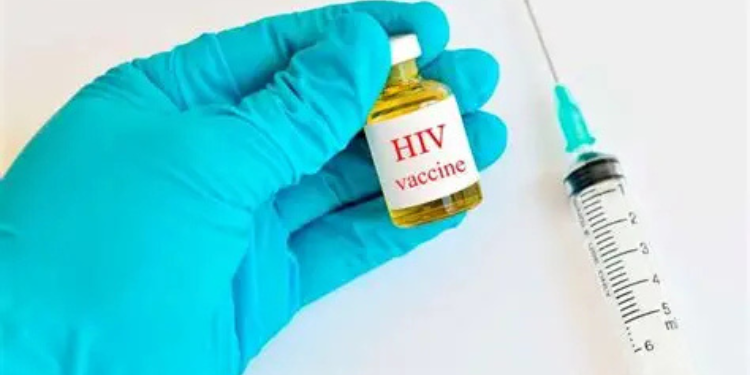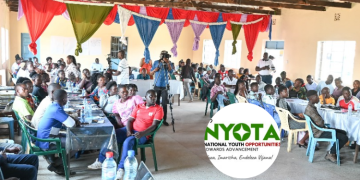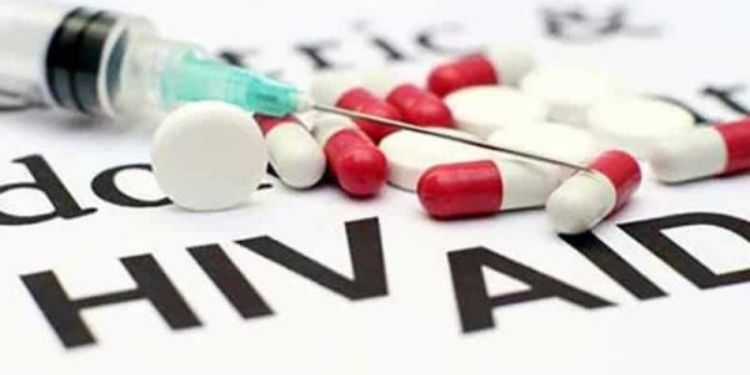Kenya, being the first nine countries globally selected to roll out Lenacapavir, a long-acting injectable HIV prevention drug, starting January 2026. The National AIDS and STI Control Programme (NASCOP) has confirmed that the injections will first be received in listed hospitals.
In an exclusive interview on July 16 with The Kenya Times, NASCOP Head Dr Andrew Mulwa explained that the government is working closely with international health partners and stakeholders to ensure a smooth and equitable rollout of the new drug.
“The HIV-preventive drugs are set to begin being administered in January next year, but global discussions are still ongoing,” Mulwa confirmed.
“Once the drugs arrive in the country, there are plans to circulate them widely in both public and private hospitals. All hospitals will have access to the drugs,” he added.
Initial Rollout Facilities
Although the Ministry of Health has not yet published an official list of hospitals that will offer the injectable HIV prevention drug, Dr Mulwa said the rollout will likely begin at major referral hospitals and county-level facilities with existing HIV prevention and treatment programmes.
The rollout is expected to start at major public hospitals, including Kenyatta National Hospital, Moi Teaching and Referral Hospital, and Jaramogi Oginga Odinga Teaching and Referral Hospital, among others, then extend further to all health facilities, including private hospitals.
Other top hospitals set to receive the drugs include Coast General Teaching and Referral Hospital, Embu Level 5 Hospital, Kisii Teaching and Referral Hospital, Kakamega County General Hospital, Nakuru Level 5 Hospital, Garissa County Referral Hospital, Meru Teaching and Referral Hospital, Machakos Level 5 Hospital, Kisumu County Referral Hospital, and Bungoma County Referral Hospital.
Cost and availability of the HIV prevention drug
Questioned on whether Kenyans would access the HIV prevention drug at no cost, Dr Mulwa clarified that while public facilities are expected to offer the injection for free, especially to vulnerable groups, private facilities may charge a fee.
“Probably, when it comes to private hospitals, people will have to pay for them, it depends,” he said.
“The costs are not yet approximated because discussions are still ongoing. However, the government is looking for ways to ensure that the drugs provided in public hospitals, and especially for vulnerable groups, will be offered free of charge,” Dr Mulwa clarified.
He added that NASCOP was consulting with both public and private sector players to develop a pricing model that supports accessibility while maintaining supply sustainability.
“Affordability is key. We don’t want a situation where a critical prevention drug is only available to a few,” he explained.
“That’s why the government is keen on making it free in public hospitals and working with partners to support this.”
Why Lenacapavir Matters
This comes after Kenya joined Eswatini, Lesotho, Mozambique, Nigeria, South Africa, Uganda, Zambia, and Zimbabwe in launching Lenacapavir under a coordinated international HIV prevention strategy.
From the latest WHO reports, Kenya has a national HIV prevalence of 3.7%, with an estimated 1.4 million people currently living with the virus.
Alarmingly, 41% of new infections occur among young people aged below 24, making the rollout of long-acting pre-exposure prophylaxis (PrEP) a high-priority intervention.
Also Read: Breakthrough as FDA Approves New HIV Prevention Injection
Lenacapavir, approved by the U.S. Food and Drug Administration (FDA) in June 2025, is the world’s first twice-yearly injectable PrEP.
The drug has been endorsed in the World Health Organisation’s updated HIV prevention guidelines released in July 2025.
How It Works
Lenacapavir is administered as an injection under the skin of the abdomen.
Prior to the injection, patients may begin with oral Lenacapavir tablets to prepare the body for treatment.
The transition follows one of two methods: the Day 1–2 method, or the 3-day method followed by injection after two weeks.
Once fully initiated, the injection is given every six months, making it a more convenient and discreet option compared to daily oral PrEP pills.
Also Read: Govt Clarifies Reports of Substandard HIV Testing Kits
Kenyan health officials believe that the introduction of Lenacapavir could significantly reduce new infections and improve adherence to preventive care, especially among high-risk and hard-to-reach populations.
“This milestone underscores our collective determination to expand access to effective, discreet, and sustainable prevention options across the region,” said the Health Cabinet Secretary, Aden Duale, addressing the labour committee on July 15.
“There is an urgency for impactful and tailored solutions,” he added.
Follow our WhatsApp Channel and X Account for real-time news updates.












































































